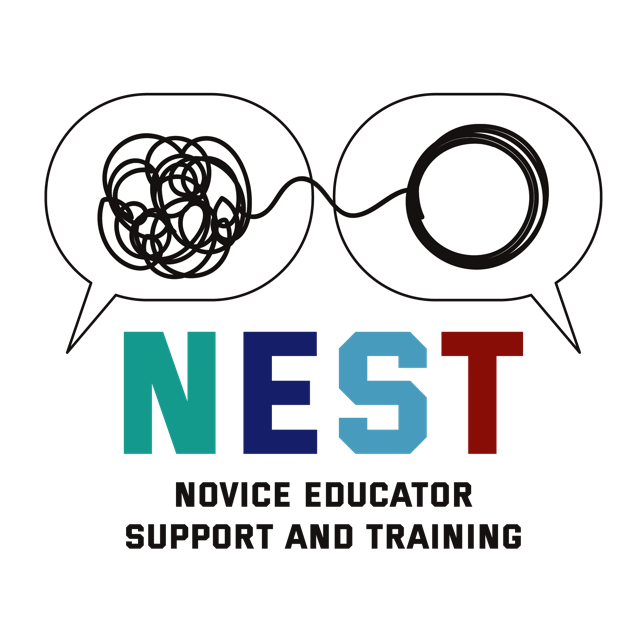Are novice teachers ready to teach as soon as they finish their studies? Moving from the university classrooms to the autonomous exercise of the profession in just a few weeks is a kind of “leap into the void without a net” that occurs in very few professional fields, yet it’s a daily occurrence in the world of teaching.

Novice teachers must equip themselves with tools to generate meaningful learning in their students. Image: rawpixel.com for Freepik.
Teachers have to learn to manage the classroom, to motivate their students and to ask good questions… in short, they have to equip themselves with the didactic, pedagogical and methodological tools to teach and generate good learning, learning that’s meaningful for the students. To learn the profession.
Support and mentoring based on the gathering of evidence by means of classroom observation has long been used with success in numerous OECD countries. This support is even more vital in vulnerable environments, in which the teachers are faced with the additional challenge of starting out on their professional careers in a context in which the students come across other difficulties.
Empieza por Educar (ExE) has been leading a career development programme for teachers for almost 15 years, equipping novice ones with the pedagogical skills and tools to work in vulnerable environments. How does it do it? Through support and mentoring from an expert teacher. In the ProFuturo Observatory we discussed the above with Miguel Costa, director of institutional relations at ExE. This is what he told us.
Support and mentoring based on the gathering of evidence by means of classroom observation has long been used with success in numerous OECD countries.
Mentoring can make the knowledge of expert teachers more explicit and socialised
“The support, the mentoring that a teacher who’s starting out and facing the reality of the classroom for the first time receives should always come from someone with experience in the environment, within the context in which the teaching is going to be delivered”. This teacher, who’s been working in the field for 10 to 15 years, has built up experience and knowledge that’s often implicit. They aren’t even aware of what they know. “This mentoring process is really interesting, because it allows this knowledge to be made explicit, it provides a space for socialisation in which the experienced teachers can pass their knowledge on to the teachers who are just starting out”.
Classroom observation: gathering evidence
How should we provide this support or mentoring? In my opinion, the learning has to take place in the classroom. We therefore work on direct classroom observation; the more experienced teachers, the mentors, should go into the classrooms of the novice teachers, observe what’s happening in them, gather evidence and then have conversations with them. During these conversations they’ll discuss what’s working and what isn’t. And how to enhance what’s working and how to strive to turn their weaknesses into strengths.
To do this it’s really important for the mentors to be properly trained. “The mentors, the tutors of the future teachers, have to be trained to perform this observation, to gather the evidence and to analyse the work of the students and the teacher, and they also have to be trained to ensure that these subsequent conversations and this support unfold in an empathetic way. To ensure that the new teachers understand that they aren’t being judged, but rather that they’re being evaluated, that they’re being supervised in a sense. Because it’s not about that, it’s about establishing a relationship of trust, about working empathetically and assertively with the people you’re supporting to enable them to see the issues that arise in the classroom, ones that are often difficult for the person who’s teaching to perceive”.
Teaching the mentors to observe and provide feedback
How can we learn to observe? What should we look out for? How can we avoid value judgements? It isn’t easy because “you have to bear in mind that all teachers have their own style and anything that deviates from that style will always seem to them like something that can be improved. Whenever you see someone else’s class, the first thing that occurs to you is how you would do it yourself. Miguel Costa therefore recommends structuring the evidence gathering. Structuring the analysis of the strengths and the areas for improvement: “The first thing new mentors should understand is that it isn’t a matter of making value judgements or offering their opinions about what they’re seeing in class, it’s a matter of gathering evidence.
An observation template
What work are the students doing? What percentage of the students are doing what they’ve been asked to do? What’s the teacher’s verbal and non-verbal communication like? What level of rigour is there in the explanation or the activities that are being carried out in class? All this evidence has to be gathered in a totally neutral way. “What we ask our mentors to do is to write down what’s happening in the classroom on an observation template in a totally neutral way; they should even make a note of the minute in which each issue occurs.
Firstly, the positives
Once we’ve worked together with the mentors to gather the evidence, the second part comes, which involves working with the constructive feedback to ensure that the teacher who receives it doesn’t feel judged. “For example, a fairly widespread rule when we refer to monitoring processes is that the feedback has to include two or three positive points before going into the areas for improvement so as to encourage a profound reflection on what the teacher’s doing well and what allows him/her to do it well”.
Learning to formulate the right questions
Finally, we have to get to the heart of the matter, to reach the underlying factors: “If a teacher fails to manage the classroom, we have to understand why this is happening. It may be that I’m worried and afraid to confront my students. It may be that I don’t believe in the rules I’ve set or the ones that are followed at my school. It may be that I have a shier profile and conflict makes me feel really uncomfortable. We have to get to the heart of the matter”. The mentor therefore has to be trained to “ask the right questions”. This is really important. It isn’t a matter of giving instructions to novice teachers, it’s a matter of asking the right questions so that they can reflect on their own performance.
It is important to learn to separate what generates real learning and what does not.
What a good mentoring programme should be like
Suitably trained professionals
A good mentoring programme should have the right professionals, as well as good mentor training. “Training that’s really solid in terms of the theoretical framework and the practical training, to ensure that these experienced teachers can learn to mentor others”.
A didactic framework
There must also be a good didactic framework to complement the teachers’ experience. “Experienced teachers have the strategies that have worked for them in the past, but they also need to broaden their knowledge of didactics and educational methodologies, and this training has to be shared with the teachers who are just starting out”, Costa explained.
Evidence-based education: knowing how to separate what works from what doesn’t work
Finally, it’s important to learn to separate what generates true and meaningful learning from what doesn’t do so. This is the phenomenon of evidence-based education. “It’s a movement that’s gaining momentum”. More and more, we’re having to analyse what’s happening in the classroom so as to separate the strategies, the dynamics and the approaches that generate true learning from those that may be great fun, highly entertaining and really spectacular without ultimately generating any learning. The mentors and mentees should therefore always begin with the premise that the important thing is to generate learning in their students, to generate academic and personal development in their students. And they have to know how to gauge it and observe it and they have to be able to realise when it occurs and when it doesn’t occur. Any mentoring programme has to incorporate this factor of understanding and separating what works in a classroom from what doesn’t work”.
Cover image: pch.vector on Freepik .
Image of rawpixel.com on Freepik.






